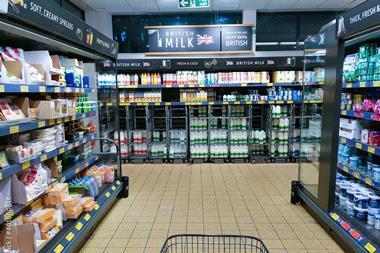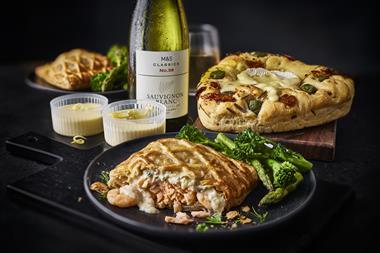The fresh food sector should brace itself for a fresh wave of M&A activity as companies look to access new markets and expand product lines by buying up the competition.
This year there have been a number of high-profile acquisitions, including Marfrig's purchase of Moy Park and Vion buying Grampian. But overall the level of M&A activity has slowed, according to Graham Bell, director at Pricewaterhouse Coopers Corporate Finance.
Activity was likely to pick up next year, he said. Where private equity houses had previously been buying up companies as investment opportunities, the banking squeeze would make that less common in 2009, he said. Instead, there would be a return to "traditional" corporate acquisitions driven by diversification and portfolio expansion needs.
The trend toward more practical acquisitions has already begun. Vion's purchase enabled it to move into poultry, while Norwegian dairy company Tine BA secured itself a direct supply route to the UK when it bought Ilchester Cheese earlier this month.
The meat sector could expect further acquisitions as companies were working on slim margins and would be attractive to competitors looking to expand into other cuts, he said.
The coming year would also bring more distress sales, where companies in financial trouble were forced to offload some or all of their business, Bell predicted.
"There are lots of companies looking highly geared with debt and when you add in the general price pressure they are under I think we'll see a number of stressed businesses forced to make sales," he said.
Areas such as chilled, frozen, fresh produce, snack foods and foodservice were still highly fragmented and could also expect more consolidation.
The UK had become even more attractive to large international players as a result of the weakening pound, Bell added, although he did not expect an influx of foreign companies.
This year there have been a number of high-profile acquisitions, including Marfrig's purchase of Moy Park and Vion buying Grampian. But overall the level of M&A activity has slowed, according to Graham Bell, director at Pricewaterhouse Coopers Corporate Finance.
Activity was likely to pick up next year, he said. Where private equity houses had previously been buying up companies as investment opportunities, the banking squeeze would make that less common in 2009, he said. Instead, there would be a return to "traditional" corporate acquisitions driven by diversification and portfolio expansion needs.
The trend toward more practical acquisitions has already begun. Vion's purchase enabled it to move into poultry, while Norwegian dairy company Tine BA secured itself a direct supply route to the UK when it bought Ilchester Cheese earlier this month.
The meat sector could expect further acquisitions as companies were working on slim margins and would be attractive to competitors looking to expand into other cuts, he said.
The coming year would also bring more distress sales, where companies in financial trouble were forced to offload some or all of their business, Bell predicted.
"There are lots of companies looking highly geared with debt and when you add in the general price pressure they are under I think we'll see a number of stressed businesses forced to make sales," he said.
Areas such as chilled, frozen, fresh produce, snack foods and foodservice were still highly fragmented and could also expect more consolidation.
The UK had become even more attractive to large international players as a result of the weakening pound, Bell added, although he did not expect an influx of foreign companies.
















No comments yet